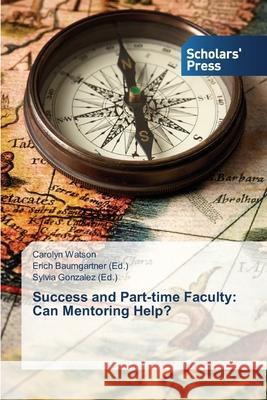Success and Part-time Faculty: Can Mentoring Help? » książka
Success and Part-time Faculty: Can Mentoring Help?
ISBN-13: 9783639519020 / Angielski / Miękka / 2014 / 276 str.
Recent data suggests that 75% of classes taught in post-secondary institutions are taught by part-time, non-tenure track faculty. This ever-growing reliance (or over-reliance as some powerful unions suggest), on a part-time labor force has caused tenured faculty, administrators, and accrediting bodies to wrestle with questions and concerns related to the use of part-time faculty and the quality of their teaching. Many part-time faculty members describe themselves as second class citizens and are often left alone to sink or swim without the collegiate support of full-time, tenured faculty and administrators. How can community colleges and universities include these marginalized members of the scholarly community and, thereby, improve instruction? The findings from this study suggests that part-time faculty members, who receive mentoring, experience a greater degree of instructor confidence and report a greater degree of loyalty to their institutions. This book offers suggestions on how institutions can design, implement, and evaluate a quality and effective mentoring program.











